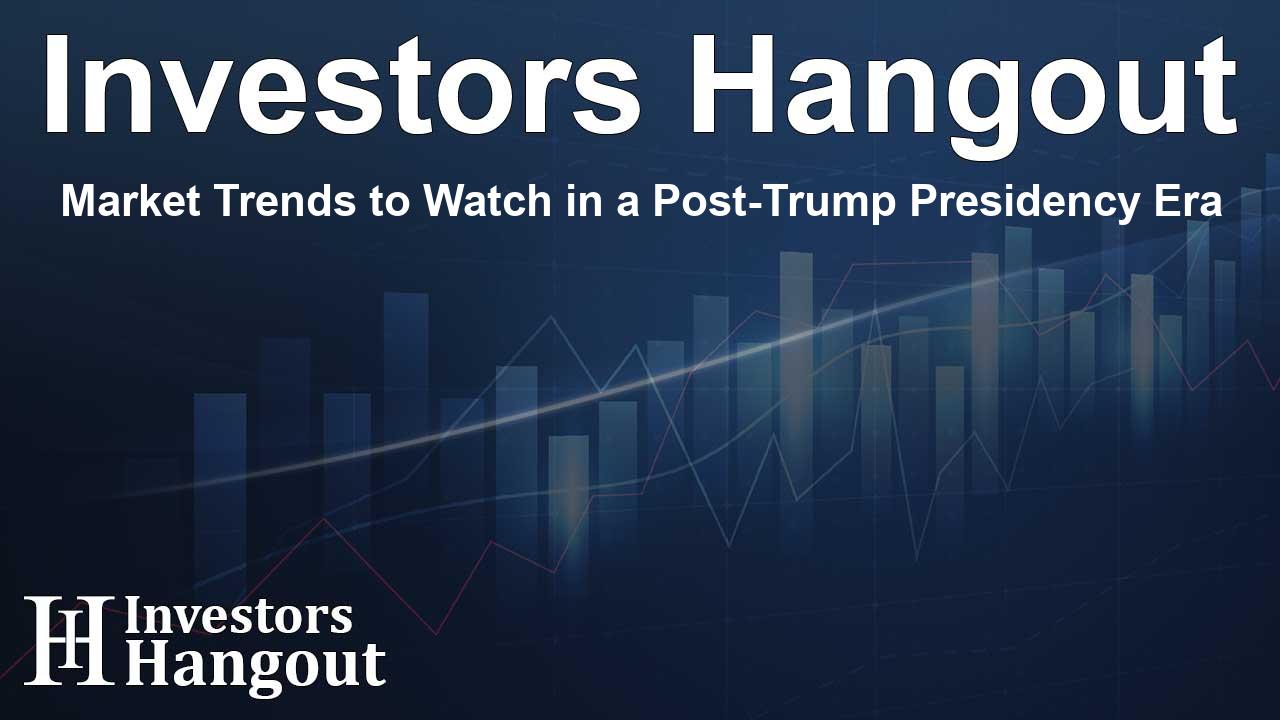Market Trends to Watch in a Post-Trump Presidency Era

Examining Market Volatility Under Trump's Leadership
As Donald Trump's presidency unfolds, many market analysts anticipate heightened volatility across a range of asset classes. The swift actions regarding trade, immigration, and regulations could significantly impact both the stock and bond markets. Trump's approach is poised to stir inflation fears, especially with proposed tariffs potentially leading to increased prices across various sectors.
Investor Sentiment and Market Reactions
Experts believe that the financial markets are closely monitoring every statement made by Trump and his allies. Jeff Muhlenkamp, a noted portfolio manager, highlighted the meticulous nature of market participants, indicating that any slight indication of policy shifts could trigger substantial reactions. Traditionally, stock prices have demonstrated a sluggish response to presidential inaugurations, but Trump's unorthodox style could set a different tone altogether.
Understanding Historical Trends
Historically, the S&P 500 has seen an average decline on inauguration days, particularly following periods of significant market adjustments. The past reactions to presidential inaugurations have varied, often dependent on the anticipated or current political climate. Following Trump's previous inauguration, for instance, the S&P 500 experienced a modest bump. However, the markets today are shaped by a new set of expectations that could amplify price movements.
The Impact of Expected Policies on Investment Strategies
Investors have been maneuvering their portfolios preemptively in response to anticipated policies under the new administration. This tactic, often referred to as 'Trump trades', has already gained traction due to optimism surrounding economic reforms. Emerging sectors, such as technology and private prisons, have witnessed notable gains, attributed to the expectation of a favorable regulatory environment. Companies like Tesla (NASDAQ: TSLA) have seen considerable value increases, reflecting the alignment between investor sentiment and leadership styles.
Monitoring Specific Sector Reactions
The energy and banking sectors, traditionally seen as potential beneficiaries of deregulation, may be trickier to predict. Some initial gains in these sectors have waned as macroeconomic conditions evolve and inflation concerns take precedence over regulatory optimism.
Anticipating Market Concerns Related to Tariffs
With the upcoming inauguration, investor apprehension regarding tariff discussions remains palpable. Analysts, such as David Bianco, emphasize the critical nature of Trump's remarks regarding tariffs and trade policies. Signs of aggressive stances on tariffs could unsettle markets, especially within bond markets already wrestling with rising yields. Investors are vigilant, aware that any indication of disruptive policies could lead to instability.
The Broader Implications for the Economy
Moreover, Trump's unique style of governance, characterized by unexpected proclamations, continues to pose challenges for economic forecasts. In witnessing statements on varied topics, from expanding fiscal measures to ambitious international goals, analysts underline the potential for market disruption. Each new stance or comment could reshape investor sentiment and market dynamics.
Continued Monitoring and Strategic Adjustments
As the Biden administration takes shape, it will be critical for investors to remain adaptive and proactive. The evolving landscape will require careful observation of market reactions to new policies and broader economic signals. Insights from industry leaders who interact with the administration could provide further guidance on future market movements.
Frequently Asked Questions
What are the main factors affecting market volatility under Trump?
Key factors include trade policies, tariff discussions, and immigration controls, which could shift asset prices quickly.
How have stocks historically reacted to presidential inaugurations?
Historically, the S&P 500 has seen an average daily decline, reflecting initial uncertainty in presidential policy directions.
What are 'Trump trades'?
'Trump trades' refer to preemptive investments in sectors expected to benefit from anticipated policies or market shifts linked to Trump's presidency.
What sectors are expected to benefit from Trump's policies?
Sectors such as technology, banking, and private prison stocks have seen increases based on expected policy shifts that favor deregulation.
How should investors prepare for potential market changes?
Investors should remain alert to economic indicators, shifts in policy, and ongoing analysis from financial experts to navigate potential volatility.
About The Author
Contact Ryan Hughes privately here. Or send an email with ATTN: Ryan Hughes as the subject to contact@investorshangout.com.
About Investors Hangout
Investors Hangout is a leading online stock forum for financial discussion and learning, offering a wide range of free tools and resources. It draws in traders of all levels, who exchange market knowledge, investigate trading tactics, and keep an eye on industry developments in real time. Featuring financial articles, stock message boards, quotes, charts, company profiles, and live news updates. Through cooperative learning and a wealth of informational resources, it helps users from novices creating their first portfolios to experts honing their techniques. Join Investors Hangout today: https://investorshangout.com/
The content of this article is based on factual, publicly available information and does not represent legal, financial, or investment advice. Investors Hangout does not offer financial advice, and the author is not a licensed financial advisor. Consult a qualified advisor before making any financial or investment decisions based on this article. This article should not be considered advice to purchase, sell, or hold any securities or other investments. If any of the material provided here is inaccurate, please contact us for corrections.
